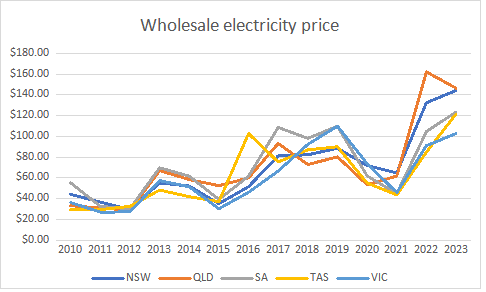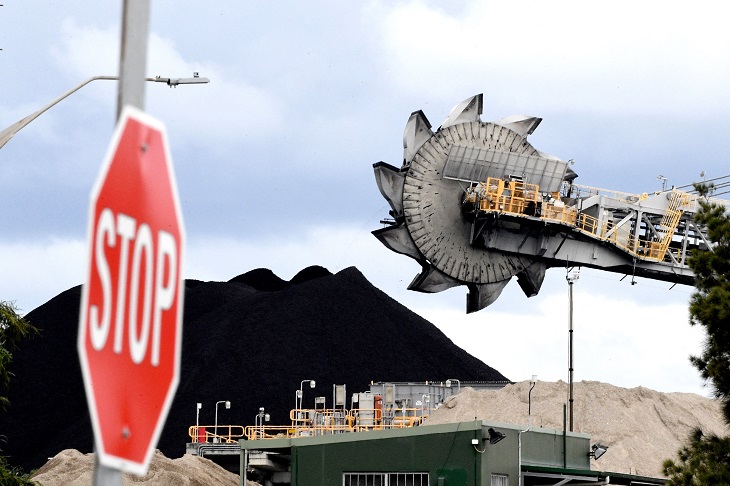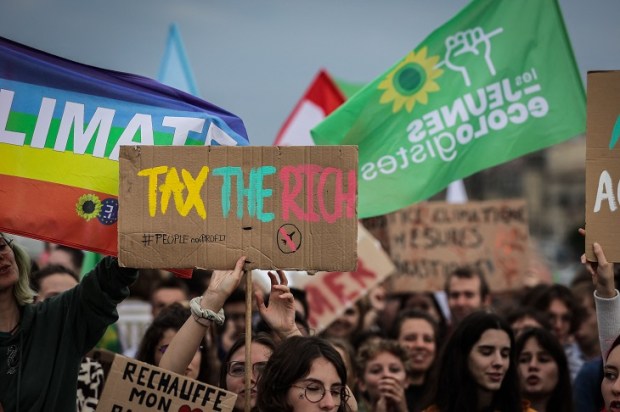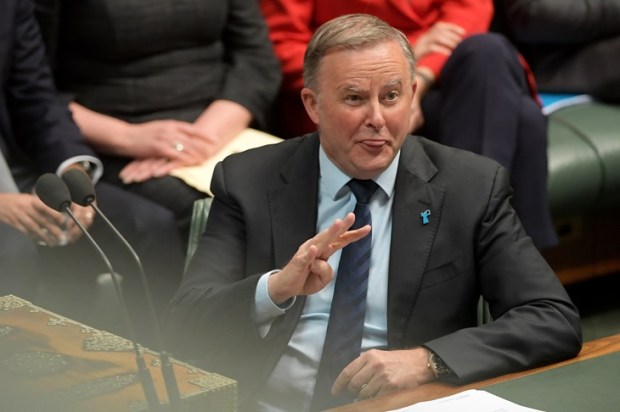The Commonwealth budget surplus stems from the nation’s resource assets, and to a lesser degree its agricultural strengths. But, rather than fostering these advantages, Australian governments are focused on negating them.
For agriculture, this is seen in ever-mounting land-use restrictions and in the Commonwealth’s intent on stopping the live sheep and beef trade.
The resources industry faces even greater environmental-based curbs on new proposals.
The Commonwealth Environment Minister, Tanya Plibersek, drummed up specious reasons to knock back two Queensland coal mine proposals this month. In doing so, she re-ran her approach to veto Clive Palmer’s $6.5 billion thermal coal mine in Queensland’s Galilee Basin; she contended, in a claim uncritically repeated by the mainstream media, that the mine would be too close to the Great Barrier Reef. Previously, the ALP-appointed President of the Queensland Land Court had rejected the proposal because ‘its 1.58 gigatonnes of carbon emissions would “contribute environmental harm” for future generations, including First Nations people’. Such grounds would justify closing all fossil fuel production anywhere in the world!
Government actions on resources will progressively harm the nation’s economic health both by constraining exports and raising domestic costs. Their effect in subsidising wind/solar, especially through regulatory requirements on electricity suppliers, and impeding coal and gas developments is already apparent in the escalating price of electricity.

In addition to off-budget regulatory support and soft loans, the Commonwealth budget listed some $30 billion supporting renewables and hydrogen, the future great white hope.
Australians are also paying for these climate-inspired policy measures in other ways.
Most superannuation funds have actively sought out wind and solar energy investments and avoided coal. Of the funds listed by Canstar, with sufficient data to readily allow performance evaluations, 25 avoid fossil fuel investments and 19 have no policy on this. Many of the former have outperformed the average, in some cases because they have been overweight in the buoyant IT and property sectors.
It has been almost two years since a Guardian article opined that ‘environmentally sustainable funds … have outperformed traditional funds across the board’, but since then there has been a marked change.
In the year to May 2023, 17 funds earned negative returns for their clients, 13 of which identified themselves as excluding or in some cases just avoiding coal and other fossil fuels in their investment portfolios. The worst performers over the past year – Spaceship (down 5.7 per cent), Super Future (down 3.7 per cent), and Verve Super Balanced (down 2.9 per cent) – all claimed strong anti-fossil fuel credentials.
Seven funds had positive returns of over two per cent, only one of which avoided investments in fossil fuels. The best performers – AMIST (up 4.3 per cent), AvSuper (up 3.6 per cent) and Perpetual Wealth (up 3.4 per cent) – had no restrictions on fossil fuel investments.
Most funds had earnings over the past five years well in excess of inflation, but with inflation now at 7 per cent, no superannuation fund has delivered a real gain for its members this year. Even those fortunate to be members of AMIST, the meat industry’s fund, went backwards by 3 per cent while the ‘200,000 Australians investing their future with Spaceship’, over the past year saw the real value of their superannuation fall by 13 per cent.
Such analyses must also recognise the considerable ‘greenwashing’ taking place. Funds claim alignment with emission reduction goals for marketing purposes, while their hard-headed investment managers choose otherwise. Agitational group Market Forces (a sizeable outfit with 25 staff) names Australia’s five biggest super funds– AMP, Australian Retirement Trust, AustralianSuper, Aware Super, and Commonwealth Super Corp – as investing heavily in fossil fuels businesses. This is despite those firms claiming support for the Paris climate goals and/or setting Net Zero emissions by 2050 targets. By embracing coal, oil, and gas those funds have cushioned the losses that their members would otherwise have seen.
The funds that are betting their members’ savings on renewable energy rather than coal and other fossil fuels are coming second best in spite of massive government support for high-cost renewables. Red ink will flow when that support is terminated, either because of budget constraints or because of a realisation that the fashionable weather-dependent renewables can never be low cost.
And there may be more bad news for superannuants. The vulnerability of commercial property investments was recently stressed by Warren Buffett. Several major superfunds (CBUS, Hostplus, and Rest Super) have more than 10 per cent of their assets in commercial property – mainly unlisted. Both the Australian Securities and Investment Commission and the Australian Prudential Regulation Authority have expressed concern at the valuations, amid mounting evidence of a property bubble burst.
Got something to add? Join the discussion and comment below.
Get 10 issues for just $10
Subscribe to The Spectator Australia today for the next 10 magazine issues, plus full online access, for just $10.


























Comments
Don't miss out
Join the conversation with other Spectator Australia readers. Subscribe to leave a comment.
SUBSCRIBEAlready a subscriber? Log in